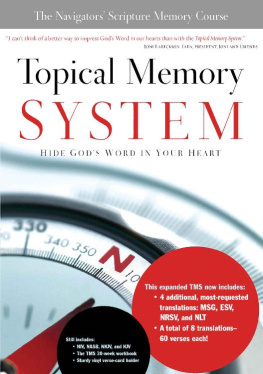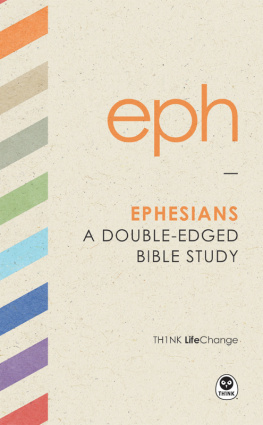NavPress is the publishing ministry of The Navigators, an international Christian organization and leader in personal spiritual development. NavPress is committed to helping people grow spiritually and enjoy lives of meaning and hope through personal and group resources that are biblically rooted, culturally relevant, and highly practical.
For more information, visit www.NavPress.com.
Philippians
Copyright 1997, 2013 by The Navigators. All rights reserved.
A NavPress resource published in alliance with Tyndale House Publishers, Inc.
NAVPRESS and the NAVPRESS logo are registered trademarks of NavPress, The Navigators, Colorado Springs, CO. TYNDALE is a registered trademark of Tyndale House Publishers, Inc. Absence of in connection with marks of NavPress or other parties does not indicate an absence of registration of those marks.
Logo Flower City font copyright by wubstudio/Creative Market. All rights reserved.
Cover photograph of hazy mountaintops copyright Fr Sonneveld/Unsplash.com. All rights reserved.
All Scripture quotations, unless otherwise indicated, are taken from the Holy Bible, New International Version, NIV. Copyright 1973, 1978, 1984, 2011 by Biblica, Inc. Used by permission. All rights reserved worldwide. Scripture quotations marked NASB are taken from the New American Standard Bible, copyright 1960, 1962, 1963, 1968, 1971, 1972, 1973, 1975, 1977, 1995 by The Lockman Foundation. Used by permission. Scripture quotations marked RSV are taken from the Revised Standard Version of the Bible, copyright 1952 [2nd edition, 1971] by the Division of Christian Education of the National Council of the Churches of Christ in the United States of America. Used by permission. All rights reserved. Scripture quotations marked KJV are taken from the Holy Bible, King James Version.
For information about special discounts for bulk purchases, please contact Tyndale House Publishers at , or call 1-800-323-9400.
ISBN 978-0-89109-072-4
Build: 2018-03-09 16:03:47 EPUB 3.0
LIST OF ILLUSTRATIONS
ACKNOWLEDGMENTS
The L IFE C HANGE series has been produced through the coordinated efforts of a team of Navigator Bible study developers and NavPress editorial staff, along with a nationwide network of field-testers.
S ERIES E DITOR: K AREN L EE- T HORP
HOW TO USE THIS STUDY
Objectives
Most guides in the L IFE C HANGE series of Bible studies cover one book of the Bible. Although the L IFE C HANGE guides vary with the books they explore, they share some common goals:
- To provide you with a firm foundation of understanding and a thirst to return to the book.
- To teach you by example how to study a book of the Bible without structured guides.
- To give you all the historical background, word definitions, and explanatory notes you need, so that your only other reference is the Bible.
- To help you grasp the message of the book as a whole.
- To teach you how to let Gods Word transform you into Christs image.
Each lesson in this study is designed to take sixty to ninety minutes to complete on your own. The guide is based on the assumption that you are completing one lesson per week, but if time is limited you can do half a lesson per week or whatever amount allows you to be thorough.
Flexibility
L IFE C HANGE guides are flexible, allowing you to adjust the quantity and depth of your study to meet your individual needs. The guide offers many optional questions in addition to the regular numbered questions. The optional questions, which appear in the margins of the study pages, include the following:
Optional Application. Nearly all application questions are optional; we hope you will do as many as you can without overcommitting yourself.
For Thought and Discussion. Beginning Bible students should be able to handle these, but even advanced students need to think about them. These questions frequently deal with ethical issues and other biblical principles. They often offer cross-references to spark thought, but the references do not give obvious answers. They are good for group discussions.
For Further Study. These include: (a) cross-references that shed light on a topic the book discusses, and (b) questions that delve deeper into the passage. You can omit them to shorten a lesson without missing a major point of the passage.
If you are meeting in a group, decide together which optional questions to prepare for each lesson, and how much of the lesson you will cover at the next meeting. Normally, the group leader should make this decision, but you might let each member choose his or her own application questions.
As you grow in your walk with God, you will find the L IFE C HANGE guide growing with youa helpful reference on a topic, a continuing challenge for application, a source of questions for many levels of growth.
Overview and details
The study begins with an overview of Philippians. The key to interpretation is contextwhat is the whole passage or book about?and the key to context is purposewhat is the authors aim for the whole work? In lesson 1 you will lay the foundation for your study of Philippians by asking yourself, Why did the author (and God) write the book? What did they want to accomplish? What is the book about?
In lessons 2 through 10, you will analyze successive passages of Philippians in detail. Thinking about how a paragraph fits into the overall goal of the book will help you to see its purpose. Its purpose will help you see its meaning. Frequently reviewing a chart or outline of the book will enable you to make these connections.
In lesson 11, you will review Philippians, returning to the big picture to see whether your view of it has changed after closer study. Review will also strengthen your grasp of major issues and give you an idea of how you have grown from your study.
Kinds of questions
Bible study on your ownwithout a structured guidefollows a progression. First you observe: What does the passage say? Then you interpret: What does the passage mean? Lastly you apply: How does this truth affect my life?
Some of the how and why questions will take some creative thinking, even prayer, to answer. Some are opinion questions without clear-cut right answers; these will lend themselves to discussions and side studies.
Dont let your study become an exercise in knowledge alone. Treat the passage as Gods Word, and stay in dialogue with Him as you study. Pray, Lord, what do You want me to see here? Father, why is this true? Lord, how does this apply to my life?
It is important that you write down your answers. The act of writing clarifies your thinking and helps you to remember.
Study aids
A list of reference materials, including a few notes of explanation to help you make good use of them, begins on . This guide is designed to include enough background to let you interpret with just your Bible and the guide. Still, if you want more information on a subject or want to study a book on your own, try the references listed.
Scripture versions
Unless otherwise indicated, the Bible quotations in this guide are from the New International Version of the Bible. Other versions cited are the Revised Standard Version Bible ( RSV ), the New American Standard Bible ( NASB ), and the King James Version ( KJV ).









